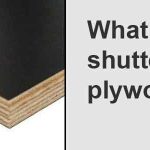Chip board is an engineered wood, it is permeable and will absorb moisture quite easily. You will often notice the boards expand and contract, due to changes in temperature and humidity.
As a general rule, chipboard will expand more in winter. The main reason for this, is relative humidity in a property. During the winter months, this tends to be higher. There are many reasons for this, a few of the main ones can be seen below:

- Poor air circulation – During winter months, windows and doors tend to remain closed to keep the cold out. This results in trapped moisture that settles on cooler surfaces. Moisture can be created by many household tasks, such as taking showers, cooking, etc
- People are in the house more – Due to cold weather, more people are in the house for longer periods. This increases humidity further, through bodily functions such as breathing and sweating.
- Drying clothes indoors – Again, this adds more moisture to the environment. Unlike summer, drying clothes outside is not an option. Instead people will use tumble dryers and airers with the heating turned up.
These are just a few examples, but you get the idea. There is simply more moisture in the air, and due to the absorbent nature of chipboard it can expand slightly.
This isn’t a problem that is exclusive to chipboard. You may also notice expansion in other timber products around the home. A common example is doors sticking. This will usually happen in winter, then in summer, doors will often contract and stop sticking.
The opposite is true in summer. Even though it may be humid at times, the following are all true:
- Windows and doors are open much more, meaning circulation is far better.
- Clothes are aired and dried outside.
- People spend less time in the house creating moisture.
- The temperature causes excess moisture in products like chipboard to evaporate.
Does chipboard flooring need an expansion gap?
When installing chipboard flooring, you should leave an expansion gap. This should be 5 – 10mm from the walls. You can hide the gap with skirting boards, so it doesn’t need to be visible. However, it will allow the flooring to expand and contract, as moisture levels and temperatures change.
Without an expansion gap, you could have problems with your flooring. The expansion gap is there to relieve pressure when the floor expands due to extra moisture. If there is no gap, the pressure created will go elsewhere. This can cause your chipboard to lift and become damaged.
When a proper expansion gap is used, the floor will be able to expand and contract easily over time. This would happen gradually, so it is not something you would notice. However, if you didn’t have an expansion gap, the issues it could cause would become apparent pretty quickly.
What if chipboard gets wet?
Slight expansion due to changes in humidity and temperature, are very different to chipboard actually getting wet.
Chipboard doesn’t like water; it is very absorbent and will quickly take on moisture. This will cause the boards to expand and swell. As this happens, the glues and wood fibers separate. This causes the chipboard to lose its structural integrity.
For this reason, chipboard is not recommended in high moisture areas. It is also not recommended in areas like bathrooms, where water splashes are common, and there is a higher risk of plumbing leaks.
You can buy moisture resistant chipboard, and this will offer some protection. However, it is important to note, that moisture resistant, is not the same as waterproof. Even water-resistant chipboard will deteriorate when exposed to wet conditions for too long.
Therefore, you could use water resistant chipboard in areas where there is a risk of moisture. However, you should avoid very humid, wet areas.
Needless to say, whether chipboard is standard or water resistant, it should never be used outside.
Conclusion
Chipboard does expand and contract. Providing it is not in direct contact with water, and an expansion gap is present, this is completely normal. The expansion is more likely to happen in winter. This is when the house isn’t as well ventilated, and humidity levels are higher.
Whilst expansion is fine, it is also a sign that chipboard is a very absorbent product. This means it should not be used in humid wet areas. It will suck up any water that it comes in contact with. This means in bad conditions; it can swell and deteriorate quite quickly.



